Learning from the Patient in ADHD: A Standardized Patient Program
PsychiatryLearning from the Patient in ADHD
1.0 AMA PRA Category 1 Credit(s) ™ 1.0 AANP Contact Hours 0.5 Pharmacology
July 15, 2021
The accreditation for this activity has expired.
Primary Audience:
Primary care physicians; nurse practitioners (NPs); physician assistants (PAs); and other clinicians engaged in the care of patients with ADHD.
Relevant Terms:
Attention deficit hyperactivity disorder
Gregory Mattingly, MD
Gregory Mattingly, MD
Associate Clinical Professor, Washington University
President, Midwest Research Group
Board of Directors, American Professional Society for ADHD and Related Disorders
St. Louis, MO
 Dr. Gregory Mattingly is a physician and principal investigator in clinical trials for Midwest Research Group. He is also a founding partner of St. Charles Psychiatric Associates where he treats children, adolescents and adults. A St. Louis native, he earned his medical degree and received a Fulbright scholarship while attending Washington University. Dr. Mattingly is board certified in adult and adolescent psychiatry and is a Diplomat of the National Board of Medical Examiners. He is an Associate Clinical Professor at Washington University where he teaches psychopharmacology courses for the 3rd year medical students. Dr. Mattingly has been a principal investigator in over 200 clinical trials focusing on ADHD, anxiety disorders, major depression, bipolar disorder and schizophrenia. Having served on numerous national and international advisory panels, Dr. Mattingly has received awards and distinctions for clinical leadership and neuroscience research. Dr. Mattingly currently serves on the board of directors for APSARD-The American Professional Society of ADHD and Related Disorders and is a certified evaluator for the NFL regarding ADHD and head concussions. He also serves on the board of Headway House, a community support program for individuals with chronic mental illness.
Dr. Gregory Mattingly is a physician and principal investigator in clinical trials for Midwest Research Group. He is also a founding partner of St. Charles Psychiatric Associates where he treats children, adolescents and adults. A St. Louis native, he earned his medical degree and received a Fulbright scholarship while attending Washington University. Dr. Mattingly is board certified in adult and adolescent psychiatry and is a Diplomat of the National Board of Medical Examiners. He is an Associate Clinical Professor at Washington University where he teaches psychopharmacology courses for the 3rd year medical students. Dr. Mattingly has been a principal investigator in over 200 clinical trials focusing on ADHD, anxiety disorders, major depression, bipolar disorder and schizophrenia. Having served on numerous national and international advisory panels, Dr. Mattingly has received awards and distinctions for clinical leadership and neuroscience research. Dr. Mattingly currently serves on the board of directors for APSARD-The American Professional Society of ADHD and Related Disorders and is a certified evaluator for the NFL regarding ADHD and head concussions. He also serves on the board of Headway House, a community support program for individuals with chronic mental illness.
| 1. | Diagnose adult ADHD based on the symptoms and associated comorbidities. | 2. | Individualize treatment regimens for patients with ADHD and integrate shared decision-making into the management approach. |
| 3. | Incorporate ADHD assessment tools into the evaluation and management of patients suspected of having, or whom have been diagnosed with ADHD, to optimize treatment selection. |
| 1. | Diagnose adult ADHD based on the symptoms and associated comorbidities. |
| 2. | Individualize treatment regimens for patients with ADHD and integrate shared decision-making into the management approach. |
| 3. | Incorporate ADHD assessment tools into the evaluation and management of patients suspected of having, or whom have been diagnosed with ADHD, to optimize treatment selection. |
Program Overview
Once thought of as a childhood disorder that primarily affected “disruptive” boys, attention-deficit hyperactivity disorder (ADHD) is now known to persist into adulthood in about two-thirds of cases, with an overall prevalence of 3%–5% of US adults. Although adult ADHD severely impacts patients and families, the condition remains underdiagnosed/misdiagnosed and inadequately treated. Since ADHD is frequently perceived to be a childhood disorder, its diagnosis in adults may not be considered. Validated tools are often not used to assess ADHD, which leads to missed diagnoses and impedes optimal monitoring and revision of treatment. Finally, patient communication is paramount to optimal treatment and clinicians need to become more comfortable with communicating and educating their patients.
In this activity, participants will be able to observe an ideal office visit to evaluate and treat a patient with ADHD, including a demonstration of shared decision making techniques. A variety of learner challenge questions will be included throughout the activity, along with peer benchmarking and faculty feedback. After the activity, participants will receive a series of three messages to reinforce key teaching points, based on unique educational gaps uncovered in the program.

NACE Accreditation Statement
The National Association for Continuing Education is accredited by the Accreditation Council for Continuing Medical Education (ACCME) to provide continuing medical education for physicians.
NACE Credit Designation Statement
The National Association for Continuing Education designates this enduring activity for a maximum of 1.0 AMA PRA Category 1 Credits™. Physicians should claim only the credit commensurate with the extent of their participation in the activity.
NACE AANP Approval
National Association for Continuing Education is accredited by the American Association of Nurse Practitioners as an approved provider of nurse practitioner continuing education. Provider number: 121222. This activity is approved for 1.0 contact hours including 0.5 Pharmacology Hours

How to claim credit
1. Review the curriculum front matter.
2. Participate in the curriculum.
3. Complete the post-test and activity evaluation.
4. You must score 70% or higher on the post-test to receive credit for this activity.
Policy on Faculty and Provider Disclosure
Accredited education provided by the National Association for Continuing Education (NACE) must demonstrate balance, independence, objectivity, and scientific rigor. All individuals in a position to influence content of NACE accredited education are required to disclose all financial relationships with ineligible companies within the previous 24 month period, regardless of relevance to the education. All relevant financial relationships and potential conflicts of interest will be mitigated prior to the activity.
NACE defines ineligible companies as those whose primary business is producing, marketing, selling, re-selling, or distributing healthcare products used by or on patients.
Faculty and Planning Committee Disclosures
Gregory Mattingly has disclosed the following financial relationships:
- Consultant: AbbVie, Acadia, Alkermes, Axsome, Eisai, Ironshore, Intracellular, Janssen, Lundbeck, Neos, Neurocrine, Otsuka, Redax, Roche, Rhodes, Sage, Shire, Sunovion, Supernus, Takeda, Teva, Trispharma
- Advisor: Abbvie, Alkermes, Eisai, Janssen, Lundbeck, Neurocrine, Otsuka, Sunovion, Supernus, Takeda, Trispharma
- Speaker: Abbvie, Alkermes, Eisai, Janssen, Lundbeck, Neurocrine, Otsuka, Sunovion, Supernus, Takeda, Trispharma
- Contracted Research: Abbvie, Acadia, Alkermes, Avanir, Axsome, Boehringer, Emalex, Janssen, Medgenics, NLS-1 Pharma AG, Redax, Roche, Sage, Shire, Sunovion, Supernus, Takeda, Teva
All relevant financial relationships and potential conflicts of interest have been mitigated.
Gregg Sherman, MD, Activity Planning Committee, has no relevant conflicts of interest with any ACCME-defined commercial interest.
Michelle Frisch, MPH, Activity Planning Committee, has no relevant conflicts of interest with any ACCME-defined commercial interest.
Sheila Lucas, Activity Planning Committee, has no relevant conflicts of interest with any ACCME-defined commercial interest.
Joshua Kilbridge, Medical Writer, has no relevant conflicts of interest with any ACCME-defined commercial interest.
Angela Golden, DNP, FNP-C, FAANP, Family Nurse Practitioner, has no relevant conflicts of interest with any ACCME-defined commercial interest.
Disclosure of Commercial Support
This activity is supported by an educational grant provided by Takeda, Inc.
Disclosure of Unlabeled/Investigational Uses of Products
The content of the presentations may include discussion of unapproved or investigational uses of product or devices.
Course format/medium: Internet Enduring Activity
Estimated time to complete the activity: 60 minutes
COURSE VIEWING REQUIREMENTS
| Supported Browsers: Microsoft Edge Google Chrome 60 or higher Mozilla Firefox 60 or higher Apple Safari 11.0 or higher For video, install the latest version of Quicktime. | Supported Phones & Tablets: iOS 9.3 and higher Android 7.0 (Nougat or higher) Microsoft Windows 8 Chrome OS |
| Additional Recommendations and Requirements | |
| Display Resolution & Color Depth | Resolution - 960 X 768 minimum - 1024 X 768 recommended min. Color Depth - 8 bits (256 colors) minimum - 16 bits (High colors) minimum |
| Audio | - Microphone - Speakers or headphones - Audio recording support |
| Word Processing | Software that can open, modify, and save documents in Rich Text Format (RTF). Microsoft Word and PowerPoint are recommended. |

